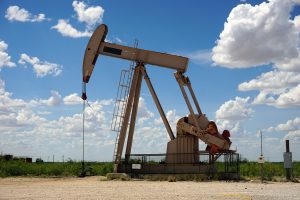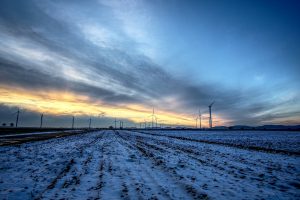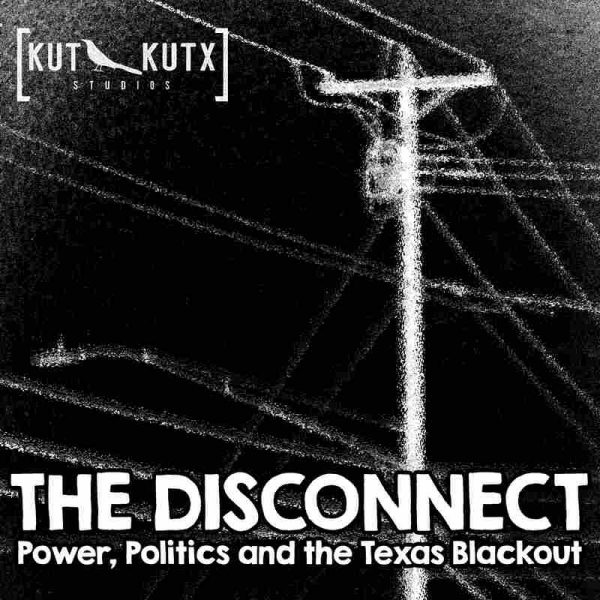In February 2021, it began to snow in Austin, Texas, which was unusual, and exciting for some, at least until the power dropped out for millions of people. To many, this came as a shock – how could a state known for its energy production have such widespread, prolonged power outages? To understand the situation, one has to look at the history of the grid, and how Texas came to be what we call an “energy island.” It’s the only state in the lower 48 that operates its own independent electric grid.
 At first, electricity was a novelty, and power was supplied by a mix of public utilities and independent entrepreneurs competing for business. Texas, with its long history of being anti-regulation, provided little oversight. But as the grid grew in different regions of the country, and especially as it started crossing state lines, regulation became a bigger issue. FDR wanted to check the power of electrical companies, in part to make sure ratepayers didn’t get a raw deal. So Congress passed a law in 1935 that said if you cross state lines, you’re going to be under the regulation of the Feds. Texas power companies looked at that law and decided to keep their system within state lines, turning away from interstate energy connections entirely.
At first, electricity was a novelty, and power was supplied by a mix of public utilities and independent entrepreneurs competing for business. Texas, with its long history of being anti-regulation, provided little oversight. But as the grid grew in different regions of the country, and especially as it started crossing state lines, regulation became a bigger issue. FDR wanted to check the power of electrical companies, in part to make sure ratepayers didn’t get a raw deal. So Congress passed a law in 1935 that said if you cross state lines, you’re going to be under the regulation of the Feds. Texas power companies looked at that law and decided to keep their system within state lines, turning away from interstate energy connections entirely.
 In the 90s, Texas pushed further in the independent, free-market direction drafting legislation that created what’s called an “energy only market.” In most other parts of the country power plants are paid to sit around and produce power in case of emergencies. In an energy only market that practice is viewed as being inefficient. So in Texas, an energy island, there is an incentive toward energy scarcity because the optimal place for the market to be is on the edge of a blackout.
In the 90s, Texas pushed further in the independent, free-market direction drafting legislation that created what’s called an “energy only market.” In most other parts of the country power plants are paid to sit around and produce power in case of emergencies. In an energy only market that practice is viewed as being inefficient. So in Texas, an energy island, there is an incentive toward energy scarcity because the optimal place for the market to be is on the edge of a blackout.
Texas has what’s known as a “reliability council.” It’s called the Electric Reliability Council of Texas, or ERCOT, for short. It’s the council’s job to make sure the Texas grid doesn’t break down. So, as the winter storm approached in February 2021, ERCOT tried convincing consumers to use less energy. However, the temperature dropped dramatically and citizens continued using power to heat their homes and businesses. ERCOT then called up energy CEOs asking them to dial up the power, but a lot of energy infrastructure started to freeze up, causing failures. In order to keep the grid from crashing and frying entirely due to this severe imbalance between supply and demand, ERCOT made the decision to cut power for millions of people.
Texans are used to rolling blackouts, but this blackout wasn’t rolling – for many, it lasted several days. During that time, natural gas pipelines, the main source of energy for Texas power plants in the winter, started to breakdown as well. Compounding the energy problems, water inside people’s pipes began to freeze too. This went on for days. Some lucky people managed to live or rent hotels in areas that were on a so-called “critical circuit,” but many couldn’t afford that option. For all the talk about markets and efficiency, and profits and risk, how to help the people the energy system failed has yet to really enter the conversation in Texas. For more on the Texas grid by Mose Buchele, be sure to check out The Disconnect.




Comments (5)
Share
Great story. I live in Houston and it was helpful to hear the full overview. Of course, it also re-activated my trauma. Can’t believe I’ve got a little PTSD over a winter storm.
A couple more complications that were omitted from the story:
1. It was still during peak COVID (Feb 2020) so leaving home to seek shelter, say in a community center, where more bodies in a room could raise the temp — this increased risk of exposure to the virus.
2. My out-of-state family kept offering to order & send me supplies like water, thermal underwear and extra blankets, but the roads were so frozen over, nothing was being delivered.
Signing off now to do some deep breathing. Thank you for the reporting and, it must be said, for your entire podcast. I do love it (and the Con Law one)!
I generally like this show and this episode got a lot of things right. But was absolutely wrong was to blame the fact the TX has a competitive retail market for electricity as having anything to do with this event. Just not true. It was the structure of the wholesale market (energy only) and the crazy insistence on not being interconnected with any other power pool that set the stage for this, together with the lack of any real regulation of generator reliability.
Competitive retail electric markets exist all over the Country, many in the PJM region. Nothing like this has happened because of “retail competition.”
Snow falls in Texas once every 50 years. It is the responsibility of the state government to have a plan in place to natural disasters. In emergencies, leaders are there to lead.
Add to that all of the energy companies are LLCs. Their raison d’etre is to make money regardless of human suffering. There is no compulsion on them to be generous.
It sounds like it was a disaster waiting to happen but surely in Libertarian Texas, you are responsible for looking after yourself.
“God, I wish I could be that good of a DJ! He’s on!” That was the legendary Dan Ingram. He’s considered to be “one of the best Top 40 disc jockeys in the industry.” https://en.wikipedia.org/wiki/Dan_Ingram
I live in a suburb just south of Houston and this brought back so many memories. Being without power for days with a 2 year old was nothing short of a nightmare. No amount of clothes/blankets could keep us warm. I remember seeing office buildings in downtown having power which was so frustrating. I know a few people that never lost power some of whom were on a hospital grid. We were fortunate enough to find a hotel for 1 night but even they lost power in the middle of the night.
Ironically, I was listening to this episode on the way to work only to reach and find out the building had lost power due to a blown transformer the night before.